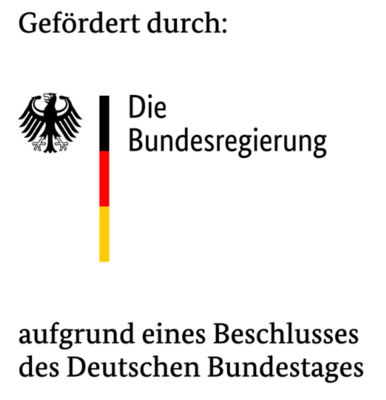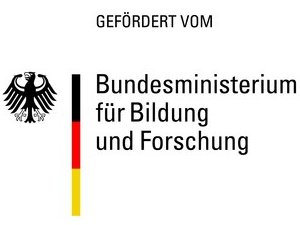Our Projects
Energy Innovation Center (EIC)



In order to coordinate and monitor the operation of multi-sector energy systems efficiently and flexibly, innovative, integrated concepts for control and instrumentation are required. In this context, the complexity of multi-energy systems requires new methodical operation and control approaches with reliable quality, robustness and cyber security properties. The development and demonstration of technologies for these challenges are the focus of the interdisciplinary facility COSYS-Lab (COntrol SYstems and Cyber Security Lab). The Chair of IT Security becomes funding for six positions for four years, including the establishment of a Young Investigator Research Group.
Cyber Security for Medical Data Exchange: 5G Campus Network for Clinical and eHealth Applications (medCS.5)

Partners: ITPower Solutions GmbH, Fraunhofer Heinrich-Hertz-Institut, Chair of Integrated Systems at University of Rostock, ccc. Center for Connected Health Care (associated partner)
The increasing digitization and wireless networking (often in connection with public networks) of various medical devices in modern medical facilities requires new approaches to ensure the high security standards that are expected in such environments. While in classic, wired networks with a limited number of devices, security was possible by manually restricting hardware access and the physical network interfaces, this cannot be achieved in modern, wireless systems with a sharp increase in the number of network participants. Therefore, new methodological approaches need to be developed and evaluated, which can guarantee the security of communication, both from a technical point of view and in relation to data protection. Secure operation can only be guaranteed with an automated solution that adapts to the constantly changing situation in the network by using up-to-date, self-learning processes. As part of this project, novel methods are to be developed that are able to accurately and efficiently detect anomalies in 5G infrastructure and to assess the degree of disclosure of sensitive patient data. In order to achieve this, the resulting data streams are recorded and relevant characteristics of the data are extracted. Based on the gained knowledge, a system is to be developed which, using methods of machine learning, will be able to recognize the normal behavior of a device or a network segment and to react if there are any deviations. Since the models developed should be executed in real time, various methods, computer architectures and design tools will be further evaluated, which make it possible to efficiently implement the developed artificial neural networks on powerful, embedded systems.
BMBF Project KISS_KI: Artificial Intelligence for simple and transferable protection of Critical Infrastructures

Partners: CodeWrights GmbH, @-yet GmbH, AUCOTEAM GmbH, Ing.-ges. Prof. Sieker mbH, Leibniz Institute for Innovative Microelectronics, University of Lüneburg, Dahme-Nuthe Wasser-Abwasser Betriebsgesellschaft, Wasserverband Strausberg-Erkner.
Industrial control and automation systems (ICS) are today confronted with completely new threats due to the progressive interconnection of operational systems such as control systems, field communication, SCADA systems with the Internet. This is especially challenging for Critical Infrastructures, which have to meet particularly high requirements in terms of availability and reliability. For a holistic and effective protection of these systems, the threats and their concrete effects on Critical Infrastructures have to be identified, analyzed and detected as early as possible by using appropriate AI methods. The aim of the project KISS_KI is to develop and test self-learning attack detection algorithms for network monitoring of operational systems, such as control systems, field communication and SCADA systems, within the industrial plants of water supply companies.
BMBF Project WAIKIKI: Knowledge-based Anomaly Detection using Artificial Intelligence in Critical Infrastructures

Partners: TU Chemnitz, Lausitz Energie Kraftwerke AG (LEAG), RWE AG, STEAG GmbH, ASCORI GmbH & Co. KG, migosens GmbH, ZEDAS GmbH.
With the focus on communication networks in the field of energy supply, the WAIKIKI project aims to develop innovative methods for a self-learning detection of anomalies caused by attacks. This should both meet the high availability requirements of these networks and address open research questions in the field of artificial intelligence (AI). For this purpose, a net-based analysis method is aimed at, in which self-regulating neural networks are combined with classical machine learning methods in order to optimally use the advantages of both approaches. The results will be presented and explained to the users by means of a visual approach. This leads to effective learning of diverse and complex network communication patterns based on little or incomplete training data.
The innovative security solution developed in the project will be, thanks to efficient self-adjustment, quickly adaptable beyond the original use case to foreign environments, such as networks of other CRITIS sectors. A use beyond the concrete use case is already established in the planning of the project. The visual presentation of the analysis results should also contribute to the explainability of the results of the AI system to humans, thus making a valuable contribution to a transparent and thus socially sustainable use. In the future, the results can contribute to the protection of various critical infrastructures and thus to digital sovereignty.
